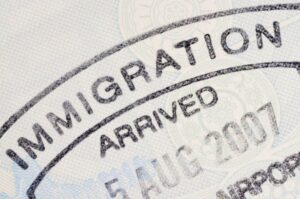We can change that if you have a compelling reason to work.
Bridge visas are typically issued automatically when you apply for a substantive visa. It is very important to carefully read the grant letter for the bridge visa. Holding a bridge visa does not necessarily mean you are granted associated work rights. At the end of your bridge visa approval letter, you will find detailed information about your work rights. If you have restrictions preventing you from working, these can potentially be removed under special circumstances.
If you are experiencing financial hardship and need to work, you may be able to apply for a new bridge visa without these restrictions, effectively granting you full work rights. To do so, you must demonstrate to the Department of Immigration that you have a “compelling need to work.”
You can apply for work rights based on a compelling need if:
- You hold a Bridging Visa A, C, or E without work rights; or
- You hold a bridging visa without work rights and have applied for a Sponsorship Visa (Subclass 482).
Applying for work rights will require submitting a new bridge visa application with information supporting your compelling need to work. Keep in mind that the Department may consider information provided in previous visa or work rights applications, so it is important to avoid providing evidence unless there is a reasonable explanation or supporting evidence for any inconsistencies or changes in circumstances.
Compelling Need to Work
A “compelling need to work” is defined in relevant legislation as being in financial hardship. In short, the Department looks to see if you are currently experiencing or are about to experience financial hardship.
The Department defines financial hardship as when “the cost of reasonable living expenses exceeds your ability to pay them.” To demonstrate this, you will need to provide evidence of your income, savings, expenses, and the support available from others, such as your partner or family.
In all circumstances, the Department may consider a variety of factors to determine whether there is a compelling need to work, including:
- Whether your declared expenses are reasonable.
- How you have supported yourself up until the time of the application.
- Whether other potential support options exist, such as a sponsor, nominator, family, or friends in Australia or abroad.
- Whether you are likely to become a burden on public funds or charitable institutions.
- When a decision on your substantive visa application is likely to be made.
Any declared expenses must be reasonable for your situation. Unnecessary expenses, such as luxury meals and branded products, will obviously not be considered.
When evaluating your circumstances, the Department may consider contractual obligations or necessary expenses such as food, accommodation, and other essential needs, including support for any dependent children.
Possible compelling reasons to work may include situations where your means of support have been through savings that are being depleted or where a person has suddenly lost a source of income (e.g., loss of employment).
The Department will also consider the expected timeline for a decision on your substantive visa application. A prolonged processing time for the substantive visa is more likely to be taken into account when determining that a person has a compelling need to work.
If you have a compelling need to work, contact our office today to discuss your circumstances in detail and receive the guidance you need to have this condition removed.







